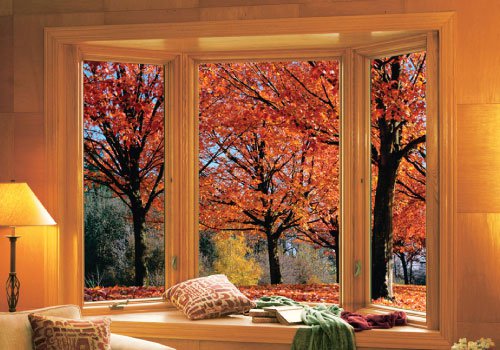


For the most part, homeowners decide to purchase new windows for their Michigan homes when they feel as if their existing windows are letting in too much air, heat or even water. Choosing quality windows means understanding the primary causes of poor performance during weather events. Here is a rundown of everything you should be looking for in your new replacement windows:
Construction Materials
The material that makes up the frame of your windows has a big impact on how long it will last and how well it will hold up to changing weather conditions. For instance, wood and aluminum sided windows are known for breaking down and getting damaged over time. In addition, extreme changes in temperature during Michigan’s winter months can cause these materials to retract, pulling away from their seals and allowing cool air inside. Today’s Fibrex® materials are less susceptible to these problems and will stay in great condition for up to 20 years with minimal maintenance.
You may have heard that vinyl windows provide the same benefits as Fibrex, but the truth is that vinyl has proven problematic over recent years. The biggest problem is that vinyl is not as rigid as our composite Fibrex, causing it to flex and warp over time. This creates leaks and failures where a more durable window would hold up.
Installation Quality
The primary cause of window failure tends to be the quality of the installation. That is why it is important for homeowners to walk with their installation team at the completion of the job and inspect each window. Make sure that the caulking around the edges is complete, and that weather stripping has been installed where necessary. You should also check that all of your windows can be opened and resealed easily. If you find that you cannot get a window sash to seal completely after it has been opened, you should have the problem addressed before the installation is signed off.
Condensation Problems
One of the less obvious problems to look for with replacement windows is protections against condensation. There are several types of windows available, some with big bulky frames that claim to let water drain out through tiny weep holes in the bottom. Unfortunately, these windows tend to have condensation problems once those little weep holes get clogged up. A better option is usually a sloped sill product with a smaller frame that is tightly sealed and won’t trap water if it gets dirty.
As you explore all of the various replacement window options for your Michigan home, ask plenty of questions about how they will help you achieve a weathertight seal around your home. Make sure you ask about the materials, and what the manufacturers have done to keep condensation at bay.
Renewal by Andersen invites you to schedule a free consultation with one of our window experts today to discuss weatherproofing your Michigan home.